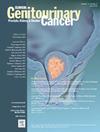Lenvatinib联合派姆单抗或依维莫司作为晚期肾细胞癌一线治疗的成本-效果分析
IF 2.3
3区 医学
Q3 ONCOLOGY
引用次数: 0
摘要
背景:近年来,由于lenvatinib联合派姆单抗或依维莫司治疗晚期肾细胞癌(RCC)的疗效良好,lenvatinib联合派姆单抗或依维莫司已被批准为中国和美国晚期肾细胞癌患者的一线治疗方案。然而,联合治疗的高成本,特别是那些新药,可能会限制其作为临床治疗选择的可行性。因此,我们的研究旨在从中国医疗系统和美国第三方支付者的角度评估lenvatinib联合派姆单抗或依维莫司作为晚期RCC患者一线治疗的成本-效果。方法:基于一项III期随机对照试验(CLEAR, ClinicalTrials.gov编号NCT02811861)的临床数据,我们使用TreeAge Pro 2022软件建立Markov模型,评估和比较lenvatinib联合派姆单抗或依维莫司与舒尼替尼治疗晚期RCC的成本和有效性。采用参数化生存模型计算并获得转移概率等数据。直接医疗费用、质量调整生命年(QALYs)和增量成本-效果比(ICERs)作为本分析的经济指标。通过进行单向和概率敏感性分析(PSA)来评估模型的稳健性。结果:在3种治疗策略中,舒尼替尼1是最便宜的选择。所有ICERs都远远高于中国和美国分别选择的38,024美元和10万美元的门槛。lenvatinib + pembrolizumab与舒尼替尼治疗的ICERs在中国和美国分别为106,749.06美元/QALY和414,672.19美元/QALY。因此,在这两种战略中,前者的成本效益不如后者。此外,lenvatinib +依维莫司治疗与舒尼替尼治疗在中国和美国的ICERs分别为44,353.18美元/QALY和292,653.10美元/QALY。因此,在这两种策略中,前者的成本效益低于后者。lenvatinib +依维莫司治疗策略的总成本低于lenvatinib + pembrolizumab;然而,前者的治疗效果不如后者。结论:在中国和美国,lenvatinib联合派姆单抗或依维莫司治疗晚期RCC患者的成本效益低于舒尼替尼治疗。本文章由计算机程序翻译,如有差异,请以英文原文为准。
Cost-Effectiveness Analysis of Lenvatinib plus Pembrolizumab or Everolimus as First-Line Treatment for Advanced Renal Cell Carcinoma
Background
Recently, due to its promising efficacy against advanced renal cell carcinoma (RCC), the combination therapy with lenvatinib and pembrolizumab or everolimus has been approved as a first-line treatment for patients with advanced RCC in China and the United States. However, the high costs of combination therapies, especially of those new drugs, may limit their viability as clinical treatment options. Thus, our study aimed to evaluate the cost-effectiveness of using lenvatinib plus pembrolizumab or everolimus as a first-line treatment for patients with advanced RCC from the perspective of the Chinese healthcare system and US third-party payers.
Methods
We established a Markov model using TreeAge Pro 2022 software to estimate and compare the cost and effectiveness of the therapy with lenvatinib plus pembrolizumab or everolimus with those of sunitinib therapy for treating advanced RCC based on the clinical data derived from a phase III randomized controlled trial (CLEAR, ClinicalTrials.gov number NCT02811861). Transition probabilities and other data were calculated and obtained by using parametric survival modeling. The direct medical costs, quality-adjusted life years (QALYs), and incremental cost-effectiveness ratios (ICERs) were used as economic indicators in this analysis. The robustness of the model was assessed by performing one-way and probability sensitivity analyses (PSA).
Results
Among the 3 treatment strategies, the sunitinib 1 was the least expensive option. All ICERs were far higher than the thresholds of $38,024 and $100,000 selected for China and the United States, respectively. The ICERs of the therapy with lenvatinib plus pembrolizumab versus sunitinib therapy were 106,749.06 US$/QALY and $414,672.19 US$/QALY in China and the United States, respectively. Thus, among these 2, the former strategy was less cost-effective than the latter. In addition, the ICERs of the lenvatinib plus everolimus treatment vs. sunitinib treatment were $44,353.18 US$/QALY and $292,653.10 US$/QALY in China and the United States, respectively. Thus, among these 2 strategies, the former was less cost-effective than the latter. The total cost of the lenvatinib plus everolimus treatment strategy was lower than that of lenvatinib plus pembrolizumab; however, the former treatment was less effective than the latter.
Conclusion
The treatment with lenvatinib plus pembrolizumab or everolimus is less cost-effective than the sunitinib treatment for patients with advanced RCC in China and the United States.
求助全文
通过发布文献求助,成功后即可免费获取论文全文。
去求助
来源期刊

Clinical genitourinary cancer
医学-泌尿学与肾脏学
CiteScore
5.20
自引率
6.20%
发文量
201
审稿时长
54 days
期刊介绍:
Clinical Genitourinary Cancer is a peer-reviewed journal that publishes original articles describing various aspects of clinical and translational research in genitourinary cancers. Clinical Genitourinary Cancer is devoted to articles on detection, diagnosis, prevention, and treatment of genitourinary cancers. The main emphasis is on recent scientific developments in all areas related to genitourinary malignancies. Specific areas of interest include clinical research and mechanistic approaches; drug sensitivity and resistance; gene and antisense therapy; pathology, markers, and prognostic indicators; chemoprevention strategies; multimodality therapy; and integration of various approaches.
 求助内容:
求助内容: 应助结果提醒方式:
应助结果提醒方式:


